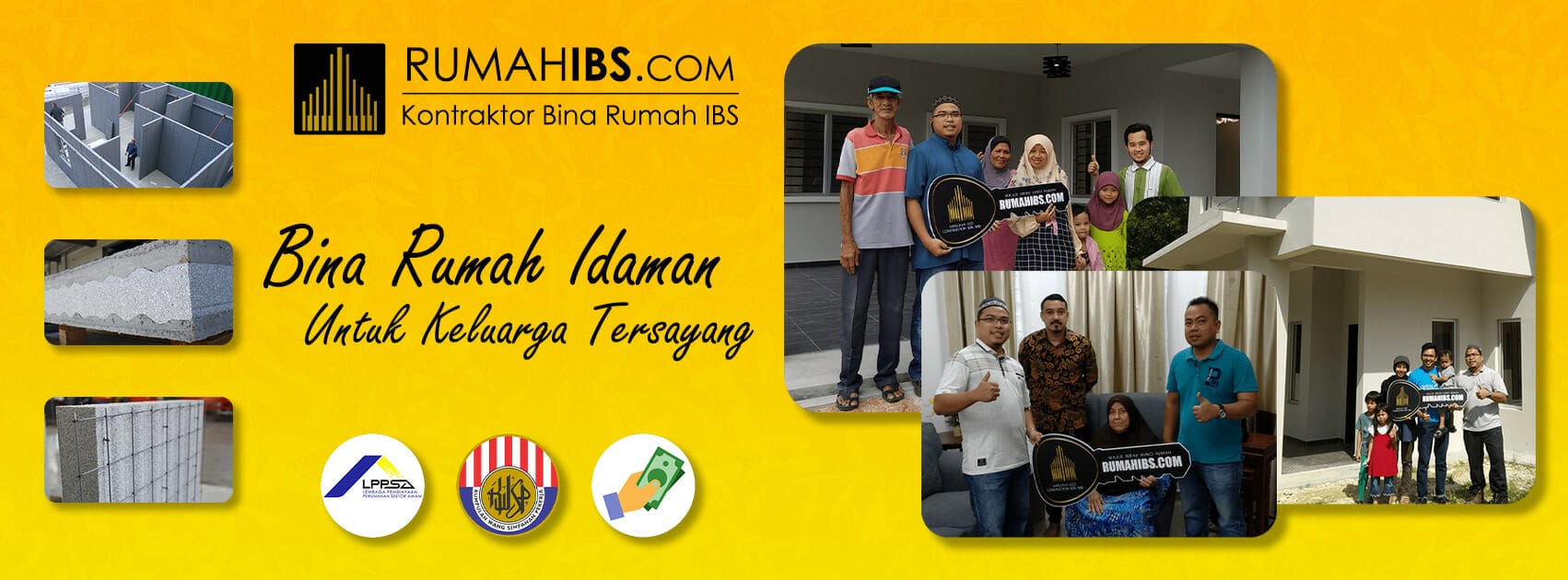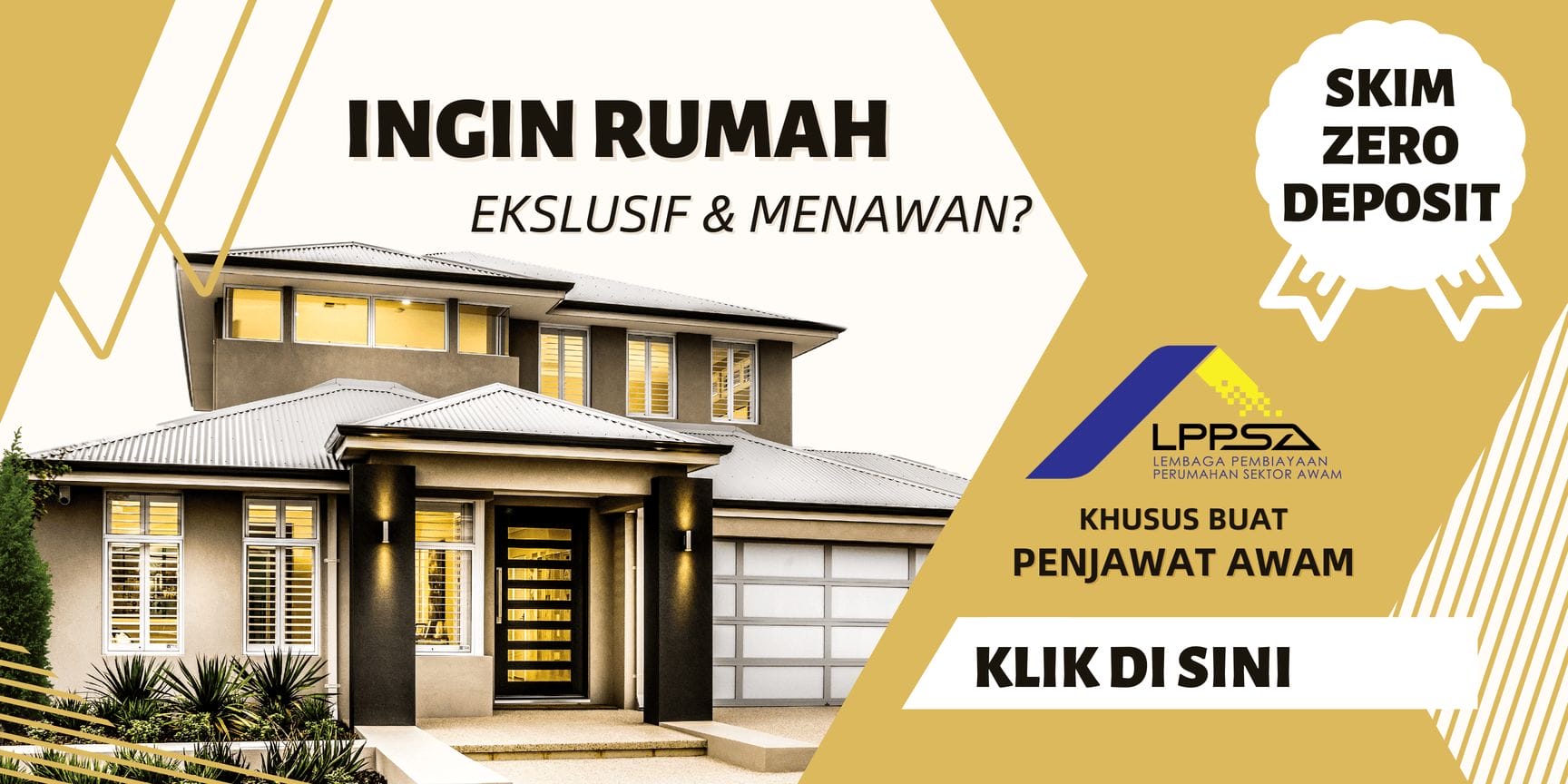- What are the different types of housing loans in Malaysia?
- What are the interest rates for housing loans in Malaysia?
- What is the maximum loan tenure for a housing loan in Malaysia?
- What documents are required to apply for a housing loan in Malaysia?
- How much downpayment is needed for a housing loan in Malaysia?
- Are there any government schemes or subsidies for housing loans in Malaysia?
- What are the eligibility criteria to qualify for a housing loan in Malaysia?
- How does credit history affect housing loan eligibility and interest rates?
- What fees and charges are involved in taking a housing loan in Malaysia?
- How can I calculate my housing loan installment and total repayment amount?
What are the different types of housing loans in Malaysia?
When it comes to financing your dream home, there are a few main types of housing loans offered by banks and financial institutions in Malaysia:
- Conventional Housing Loan – This is the most common type of housing loan. It involves fixed or variable interest rates and equal monthly instalments over a defined loan tenure. The loan amount and tenure depends on eligibility.
- Islamic Housing Loan – For this, the bank buys the property and sells it to you at a profit over the loan tenure. No interest is charged but the profit rate may be fixed or variable. The installment amount changes based on the remaining principal.
- Step-Up Housing Loan – Here the EMI starts lower and increases at a fixed predetermined rate over the loan tenure. This helps manage cashflow in early years.
- Fixed Rate Housing Loan – The interest rate remains unchanged over the entire loan tenure, providing stability. But usually costs more than variable rate.
- Variable Rate Housing Loan – The interest rate fluctuates based on macroeconomic factors. Installments change accordingly. Offers lower rates initially.
- Hybrid Rate Housing Loan – Combines features of both fixed and variable rate loans. Rate remains fixed for a defined period, then converts to variable rate.
- Zero Moving Interest Scheme – A variation of step-up loans. For the first 2-3 years only interest is paid. Principal repayment starts thereafter. EMI increases gradually.
Factors to consider when choosing between the different types:
- Interest rate trends and your risk appetite
- Cashflow stability preferences
- Loan tenure
- Ability to manage increasing installments
- Early redemption needs
- Offered rates and fees for each loan type
Discuss with your bank to choose the option that best fits your financial situation and future plans. Do your research to compare different lender rates and features as well.
Key things to note are the interest rate structure, installment change trends, total repayment amount and any lock-in clauses or penalties. Read the fine print before committing!
What are the interest rates for housing loans in Malaysia?
When taking a housing loan in Malaysia, the interest rate is one of the most important factors that determines your overall repayment amount and affordability. Here are some key things to know about current housing loan rates:
- For conventional housing loans, interest rates range between 3.6% to 5.5% depending on the lender, loan amount, tenure and borrower’s profile. Rates are typically lower for higher loan amounts and longer tenure.
- Base Rate (BR) and Base Lending Rate (BLR) are benchmark rates used to price loans. The BLR is usually 2-3% above the BR.
- Banks offer housing loans below the BLR to attract customers. The margin below BLR depends on promotional rates, credit history etc. Stronger profiles get lower rates.
- Islamic housing loans peg their profit rates to BR/BLR too. Profit rates range from 3.8% to 5.7% based on similar factors as conventional loans.
- Fixed rate loans offer stability but are 0.5-1% higher than variable rate loans. Locked-in for 3-5 years.
- Initial variable rates start from 3.4% but will fluctuate over the tenure. Good if rates trend downwards.
- Hybrid loans offer fixed rates for 2-3 years then switch to prevailing variable rates. Initial rates around 3.8-4.3%.
- Step-up loans have rates of 4-4.5% in early years, rising to 4.5-5% in later stages per predetermined schedule.
- Zero moving interest schemes have average rates of 4.25% with only interest payable in initial years.
- Different loan tenures like 5, 10, 15, 20, 25, 30 or 35 years carry different rates too. Longer tenures get lower rates.
- Refinancing can help get lower rates. New customer and promotional rates are sometimes 1-1.5% below existing borrower rates.
Do extensive research and use loan comparison tools to find the best rates. Ask the banks directly too. A lower rate can make a big difference to total interest cost over the long term.
What is the maximum loan tenure for a housing loan in Malaysia?
When taking a housing loan to finance property purchases in Malaysia, one important consideration is the loan tenure – i.e. the length of time over which the housing loan will be repaid. Here are some key points:
- The maximum tenure offered for housing loans in Malaysia is 35 years. This applies to loans taken directly from banks/financial institutions.
- For government housing loan schemes like Skim Rumah Pertamaku by Cagamas, the maximum tenure is 40 years.
- Generally, a longer loan tenure means lower monthly instalments due to the extended repayment period. However, you end up paying more interest in total over the entire loan tenure.
- Most banks offer housing loans with tenure options of 5, 10, 15, 20, 25, 30 and 35 years. 25-30 years is common for first home buyers.
- When choosing your loan tenure, ensure your repayment period will cover you at least until your retirement age.
- Also consider your age at the start of the loan, income stability, future plans for the property etc. when deciding on tenure.
- If taking a joint loan as a couple, look at the age of the youngest co-borrower. For e.g. joint applicant age of 28 years can take maximum 30 year loan tenure.
- Longer tenure like 35 years is advisable if you are getting married and taking a joint loan at a young age.
- It provides more affordable instalments while building up your career over time for higher future earnings.
- Shorter tenure like 10-15 years if you take a loan later in life. Repay before retirement.
- Banks may approve shorter tenure than maximum if your age, income documents don’t support repayment ability for 35 years.
- If refinancing, maximum tenure depends on your age and the remaining years left to original maturity date.
Discuss your preferred tenure with the bank. As a rule of thumb, don’t over-stretch your finances – take the longest term you can reasonably repay based on your income profile and retirement plans.
What documents are required to apply for a housing loan in Malaysia?
Preparing the necessary documents for a housing loan application is important for quick processing and approval. Here are the key documents banks and financial institutions typically require:
Identity Documents
- NRIC (MyKad) photocopy
- Passport photocopy
- Birth certificate
Income Proof
- Latest 3 months’ payslips
- Latest EA Form or Borang BE
- Latest 6 – 12 months’ EPF statements
- Latest 6 months’ bank statements
For self-employed applicants:
- Business registration certificates
- Latest 2 years’ income tax statements and notice of assessment
- Latest 12 months’ bank statements
Employment Details
- Confirmation letter
- Last 3 years’ EA Forms
Property Documents
- Sale and purchase agreement (draft)
- Copy of title deed if refinancing
Other Supporting Documents
- Marriage certificate – if applying jointly with spouse
- Tenancy agreement – if you are renting
- PTPTN loan statements – if paying off through salary deductions
- ASB or other fixed deposit statements
- Other loan statements if re-financing
Credit Related Documents
- CCRIS credit report from the Credit Bureau
- Latest 3 months credit card statements (if applicable)
- Other loan statements (if applicable)
Have all documents ready at the time of application to the bank. This will help fast track approval and avoid delays. Speak to the bank’s loan officer for advice on any other specific documents needed.
How much downpayment is needed for a housing loan in Malaysia?
The downpayment is a critical component of getting approved for a housing loan in Malaysia. Here are some key aspects to consider:
- The minimum downpayment required by most banks is 10% of the property purchase price.
- However, a 20% downpayment is ideal and highly recommended. This helps:
- Get easier loan approval
- Reduce your loan amount
- Lower your interest cost
- Increase equity in the property
- Improve chances of getting the best interest rates
- Higher downpayments like 30-40% are favourable too but not always possible for first home buyers.
- With loan-to-value (LTV) ratios, the higher your downpayment, the lower the LTV ratio:
- 10% downpayment = 90% LTV
- 20% downpayment = 80% LTV
- 30% downpayment = 70% LTV
- Lower LTV ratios signal lower credit risk for the bank and improves your loan eligibility.
- New regulations have capped maximum LTV ratios at 70% based on loan tenure:
- Up to 30 years tenure – Maximum LTV 70%
- Above 30 years tenure – Maximum LTV 60%
- This means you may need to put down 30-40% downpayment for longer tenure loans.
- Downpayment amount is based on agreed property price or actual valuation, whichever is lower.
- The source of funds for your downpayment must be clearly documented for banks to review.
Saving up for the downpayment early is key before making any property purchase. Explore all options – savings, family support, schemes etc. A higher downpayment gives you a stronger start and more affordable instalments on your housing loan journey.
Are there any government schemes or subsidies for housing loans in Malaysia?
The Malaysian government provides various assistance schemes and subsidies to promote home ownership, especially for first time buyers. Here are some key schemes available:
Skim Rumah Pertamaku
- Provides guaranteed financing for first home purchases up to RM500,000
- Offered by Cagamas, a national mortgage company
- Up to 110% financing rate, covers 10% downpayment
- Subsidized interest rates from 3.5% p.a.
- For properties built by selected participating developers
Fund for Affordable Homes
- Provides a subsidy of RM10,000 for each unit purchased
- For households with income RM2,300 and below
- Limited to first 300,000 applicants on a first-come basis
HOPE Fund
- Provides assistance for home repair and maintenance
- Subsidy amount up to RM10,000
- For B40 households with income RM4,360 and below
MyDeposit Scheme
- Offers financing up to RM30,000 for downpayment
- Must be utilized along with mortgage from participating banks
- For first time buyers with household income RM5,000 below
STEP Housing Subsidy
- RM12,000 subsidy for monthly income RM3,600 and below
- RM8,000 subsidy for monthly income RM3,601 to RM4,000
- For first home purchases up to RM300,000
Do check eligibility criteria, applicant profile and other terms specific to each scheme. There are also special subsidized housing loan packages offered in conjunction with certain government housing programs – speak to the banks to explore options.
What are the eligibility criteria to qualify for a housing loan in Malaysia?
Meeting the eligibility criteria set by banks and financial institutions is crucial for getting your housing loan application approved. Here are some of the key criteria:
Age
- Minimum age 21 years. Maximum age depends on retirement age – typically 60 or 65 years.
Income Level
- Minimum monthly income of RM3,000-RM5,000. Higher income improves chances of approval and better rates.
- Total household income will be considered for joint applicants.
Employment
- Permanent employment or minimum 2 years in current job.
- Self-employed persons must show steady income over last 2 years.
Credit History
- Good credit track record withoutdefaults, missed payments or overdue amounts.
- Low credit card outstanding balances preferred.
Downpayment
- Typically 10-20% of property price required as downpayment. Higher downpayment improves loan eligibility.
Loan Amount and Tenure
- Maximum loan amount and tenure depends on income documents, age, repayment ability etc.
- Loan amount capped at 70-90% of property value.
Debt Burden Ratio
- Total monthly loan obligations (including new housing loan) should not exceed 60% of gross monthly income.
Remaining Retirement Age After Loan Maturity
- Should have at least 5 years of retirement age remaining after loan tenure completes.
Meeting the minimum eligibility criteria does not guarantee approval. Banks will holistically assess your profile including income stability, savings history, living expenses and other factors. Boost your chances with stronger documents.
How does credit history affect housing loan eligibility and interest rates?
Your credit history plays an important role in determining whether you qualify for a housing loan and what interest rates you can get. Here’s how it affects housing loans:
- Banks will check your CCRIS credit report from Credit Bureau Malaysia for past and current credit behaviour.
- Good credit history with no missed or late repayments, defaults, judgements etc. improves loan eligibility.
- If you have defaults, banks may reject loan application until defaults are resolved and improved track record shown.
- Even with defaults, strong other factors like high income may still get approval but expect higher interest rates.
- Higher credit scores above 700 points mean lower credit risk. This helps negotiate lower interest rates.
- Scores below 650 points are considered higher risk. Will be offered higher interest rates.
- Applicants with no prior financing history also get higher rates due to lack of track record.
- Number of credit applications and inquiries will be checked too. Too many in a short period raises risk and rates.
- Low credit utilisation ratio below 50% shows good credit behaviour. Helps secure better rates.
- High outstanding balances on existing loans or credit cards raise concerns on repayment ability.
- Meeting all monthly repayments on time and keeping credit history clean for 1-2 years can help improve eligibility and interest rates for future housing loan application.
Do obtain your CCRIS report in advance and take measures to build your credit score. This gives you a higher chance of loan approval on favourable terms. Maintaining good credit behaviour also allows you to refinance at better rates in future.
What fees and charges are involved in taking a housing loan in Malaysia?
When taking a housing loan, it is important to understand the different fees and charges involved:
Loan Application and Processing Fees
- One-time fee for applying and processing the loan application. Ranges from RM100 – RM500.
Loan Agreement and Disbursement Fees
- Administrative fee for preparing loan agreement and releasing loan amount. Typically around 0.5% – 1% of approved loan amount.
Valuation Fees
- For bank appointed valuers to assess property value. Around RM300 – RM500 depending on property price.
Legal and Stamping Fees
- Paid to lawyers for loan agreement drafting and stamping. About RM2,500 – RM5,000.
Mortgage Redrawal and Discharge Fees
- If redrawing approved but unutilized portion of loan, banks charge a redrawal fee around RM50 – RM100.
- Discharge fee for releasing property title upon loan settlement charged at RM100-RM300.
Early Redemption / Settlement Penalty
- Some banks charge penalty fee if you fully settle loan before maturity date. Typically 1% – 3% of outstanding amount.
Restructuring Fee
- For restructuring or changing original loan terms like tenure. Between RM100 – RM500.
Monthly Account Service Fee
- A monthly maintenance fee around RM5 charged by some banks.
Ask your bank/advisor for the full list of fees applicable to avoid surprise charges later. Shop around to find loans with lower fees. The initial fees can usually be included in loan amount.
How can I calculate my housing loan installment and total repayment amount?
Being able to calculate your potential monthly installment and total interest repayment is crucial when budgeting for a housing loan. Here are some tips:
Loan Amount
- First determine the loan amount you need. This is property price minus your downpayment. Remember to account for other costs like legal fees and stamp duties as well in the loan amount.








